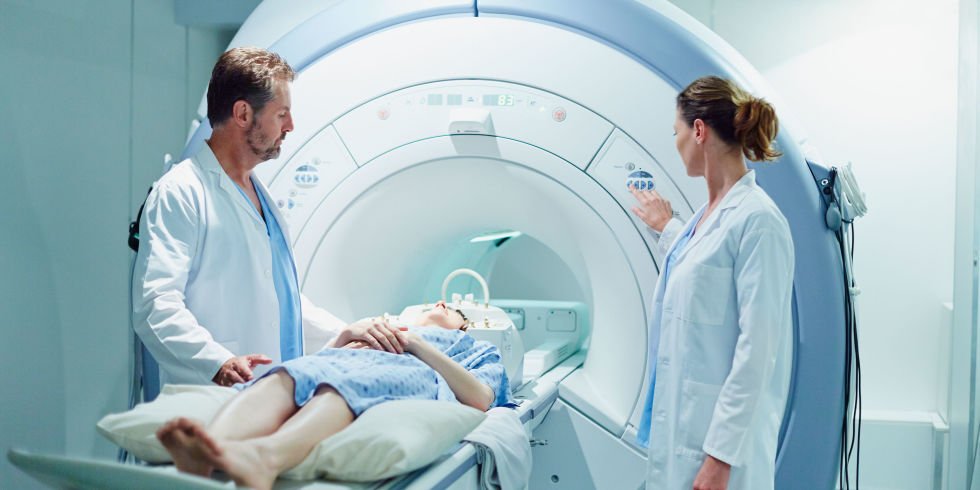
State-of-the-art medical technology (including MRI scans) can now offer a comprehensive picture of what is going on inside our bodies, flagging up potential health issues long before symptoms emerge, and helping to save lives. One in three people in the UK will be diagnosed with cancer, yet 90% of common cancers can be cured if caught early, and cardiovascular disease and degenerative conditions are also leading causes of death that benefit from early diagnosis and treatment.
Dr Garry Savin, Medical Director at Preventicum, the London Centre for Preventive Medicine, comments:
“The NHS health check carried out at 40-plus at your GP surgery is very basic – blood tests and a brief nurse led questionnaire, looking for things like hypertension, diabetes and cholesterol issues. We offer comprehensive MRI scanning and ultrasound as part of detailed body testing. It’s a bit like taking your car for a service and someone looking at it from the outside versus someone taking the engine apart and looking at each bit! Clients of all ages come to us, from early adulthood to people in their nineties, because we can pick up pathology that a routine blood test will not and the problems can vary according to age– cancers, cardiovascular disease, life-threatening aneurysms and many other abnormalities.”
Healthchecks abroad
At 48 – with a family history of heart disease, cancer and other health issues – I decided that a comprehensive healthcheck would be a useful, potentially life-saving investment. There are various clinics in the UK that offer the service, and companies that provide healthchecks abroad at a fraction of the cost. I travelled with London-based Healthcheck Holidays, which combines a unique citybreak experience with an MRI-assisted healthcheck, in locations from Poland to India.
Founder, Pawel Komorowski, explains:
“Most people are now working in much harder, more intense situations than ever before and the stress is higher. Corporates are seeing the benefits in comprehensive health testing as a means of keeping their employees healthy and productive, and it makes economic sense to do it abroad with the added bonus of a citybreak as a work perk.”
I went with Healthcheck Holidays to Rzeszow in Poland and enjoyed a wellbeing spa break in a beautiful city, as well as an MRI-assisted healthcheck at the Pro Familia Hospital. The medical facilities were state-of-the-art, the staff spoke good English and a hospital rep accompanied me throughout the process; I spent a full day undergoing everything from blood-testing and dietary investigations to ultrasound and MRI scanning.
The MRI scan was a little noisy and I was worried about feeling claustrophobic, but I just kept my eyes closed and thought about the delights of the hotel dinner menu and the city excursions I’d be doing later!
The results are in
At the end of the healthcheck I had a brief review with a doctor to flag up any immediate issues and the full results were then sent to me via email.
The verdict? Thankfully my cardiovascular health is good and there were no obvious signs of tumours or other serious abnormalities. However, tests did show that I have gallstones, anaemia, breast cysts and a chronic allergy in my throat and nose.
My mother was rushed to hospital for an emergency gall-bladder removal a while back so I need to keep an eye on that issue. I’m now eating an iron-rich diet for the anaemia, conducting further investigations into the allergy issue and making sure my doctors keep an eye on the breast cysts (particularly with my hormones changing at menopause).
The risk of over-diagnosis
Despite the growing popularity of MRI-assisted healthchecks, the process has faced criticism from some doctors who say this level of detailed testing can lead to over-diagnosis and cause needless worry for patients. Dr Tony Newman-Sanders, National Clinical Director for Diagnostics, NHS England, explains:
“If whole populations, even those over a certain age, were screened in this way, the number of abnormal scans would be extremely small and a very large amount of NHS resource would be expended. A large number of findings would require further imaging and follow up and it would generate a lot of additional diagnostic activity and patient anxiety. The NHS should certainly maintain an open mind on MR ‘screening’ though as the technology develops and costs are reduced.”
Preventicum’s Consultant Radiologist, Dr Syed Babar counters this criticism:
“Of course it’s possible to find benign abnormalities of no consequence and not everything we see is going to have an effect on the patient’s health and we explain this to them at our in-depth consultations. It’s how it’s interpreted through expert opinion that’s crucial. We have the experience to know whether something is important or can be disregarded.”
I certainly found my healthcheck to be a really valuable experience. Some anomalies did show up that weren’t actually doing me any harm (vertebrae in my spine) but I would rather have too much information than miss something potentially life-saving. So before you splash out on another beach holiday or a new car, consider investing in a fully body M.O.T instead, to keep your inner motor running!
[“source=netdoctor”]








